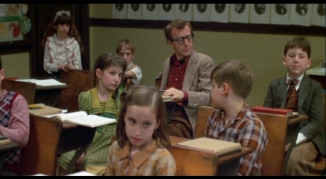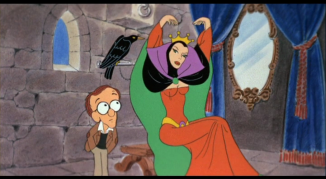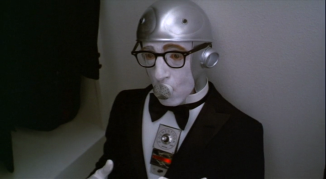Interiors (1978) is an American drama film, directed by Woody Allen. The sixth film of his I’ve covered in this series. From immediate impressions, it’s a huge departure from anything we’ve seen before. You could say Annie Hall, and his boycott of the Oscars that year showed he was moving towards a much more serious direction, instead of the satire, the slapstick. The humor is surprisingly nowhere to be found in Interiors, and more surprisingly, Woody Allen isn’t in this one. My initial first look at Interiors before I sat down and watched it weeks later, was that it was somewhat of a domestic drama, headed in a much more artistic direction than Bananas (1971) and the like, however, as deep and poetic as Interiors maybe, I felt it had something missing.

Often stressed, and successful Writer Renata (Diane Keaton)
Interiors is about a family as two parents go through a trial separation until finally the husband demands a full divorce and introduces his new wife to his three daughters, the narrative focuses highly on the three daughters and their reaction to this, and how they cope. The mother (Geraldine Page) is incredibly overbearing, and tries to force her ways on her husband and her children, as we discover she’s fairly neurotic through the course of the story, and is ultimately unable to live without her husband (E.G Marshall). Renata (Diane Keaton) is the oldest of the three sisters, and harbors some responsibility, a lot of the tension from the film comes between her, and her husband Frederick (Richard Jordan). Renata is a successful writer, but Frederick feels he is unable to live up to her standards and grows to resent her. Meanwhile Joey (Mary Beth Hurt) is floundering in life, and is unable to find her purpose, or a job that suits her, she is strongly attached to her mother even though ultimately her mother rejects her, and prefers Renata for her artistic merits. Third sister Flyn (Kristin Griffith) is a relatively successful actor and model, yet relatively dim as is the subject of jealousy from Renata and Joey as she flutters and blushes for their spouses amusement.
Interiors is definitely an expressionist film, highly focused around families, dynamics, and how we interact with one another. Woody Allen identifies the film himself as an homage to Ingmar Bergman, and it shows. The film it’s self has many elements of realism, and naturalism, with virtually no score throughout the film, which preserves emotion and makes you focus on performance. Akin to Annie Hall (1977) Allen uses cuts to juxtapose scenes of varying emotions showing characters in their varying moods which makes them feel remarkably human, seeing Renata and and Frederick perfectly happy in one scene for example, and soon a cut shows them arguing and very malcontent. The film is very dark, I assume not much lighting has been used as to try and capture that kind of danish naturalism Allens paying homage to in this film. I’d be lying if I said a lot of the film wasn’t very samey, and we basically live out the same arguments with several different characters, but there are some very potent scenes. One of which occurs at the end, in which eve the neurotic mother decides she finally can’t cope being alone, as she walks into the sea. Her daughter Joey attempts to save her, only to be dragged back by her husband to stop her from drowning, during this we see intercut shots of the other daughters and the ex-husband sleeping. Quite a potent metaphor showing they’re done caring for her, and they’ve basically accepted this, signified by their passive sleeping.
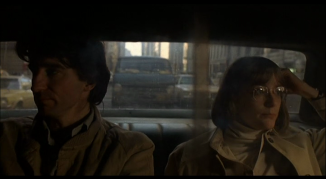
The floundering and purposeless, Joey.
The performances are pretty potent, however no one’s really given a great chance to shine given that the naturalistic style doesn’t bode well for high drama, as it tries to preserve human emotion, as opposed to theatrical emotion. Overall, there are elements of Allen’s style still evident here, in particular it definitely shows his understanding of the cinematic elements more than his other films. Interiors definitely isn’t as interesting, witty, or satirical it does show directorial talent. For those interested in personal human drama, it’s worth a watch, if not it’s probably a bit bland, and leaves a bitter taste on the tongue.
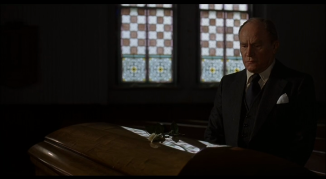
A death in the family.
Summary: Interesting, but not entertaining. Woody Allen’s 6th film, Interiors is based on family dynamics, and human interaction. Particularly those who are artistically inclined, however while it does show directorial talent and performance, the film is very naturalistic which at times can be quite dull or otherwise quite uncharacteristic, especially for an aesthetic film lover like myself. Regardless, Interiors is at least interesting if nothing else, and I’ll continue with Stardust Memories, next time, on Greatest Directors. Follow me on Twittor @Sams_Reel_Views.



